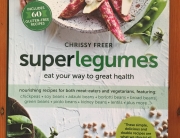 By now I’m sure you have all read the headlines throughout various media outlets over the past week. If not, let me re-cap for you…
By now I’m sure you have all read the headlines throughout various media outlets over the past week. If not, let me re-cap for you…
- Fish oil supplements increase prostate cancer risk, says study – SMH
- Hold The Salmon: Omega-3 Fatty Acids Linked to Higher Risk of Cancer – Time (Health and Lifestyle)
- Fish oils may raise prostate cancer risks, study confirms – NBC News
- Omega-3 raises prostate cancer risk – ABC
What these sweeping headlines are referring to is a study that was published online in July 2013 regarding Plasma Phospholipid Fatty Acids and Prostate cancer risk.
This study measured levels of omega-3 in the blood of participating men, however it did not include vital information regarding the men’s eating habits, or current use of medications/supplements. This lack of information meant the researchers could not differentiate between the effects of fatty acids from fish, plants or those of supplements.
What the study actually concluded…
“This study confirms previous reports of increased prostate cancer risk among men with high blood concentrations of LCω-3PUFA”.
Put simply, they found a link between high levels of omega 3 fatty acids in the blood of men with prostate cancer. They DID NOT conclude that fish oil supplementation was the causative agent to their findings or the reason for an increased risk of prostate cancer.
Before heading to the fridge to grab your bottle of fish oil supplements and toss them in the bin, do your own research. Look up some studies that are specific to fish oil (not just omega 3 fatty acids in blood) and prostate cancer. Weigh up the information to see if it is relevant to you. What I mean is, if you’re a woman you need not concern yourself with the possibility of developing prostate cancer. And always speak to your healthcare professional (GP, naturopath, herbalist or nutritionist) to find out what dietary specifics are suited to you. Don’t be afraid to always ask why, and for research articles to back up their advice.
Three reasons I’m sticking by my fish oil supplements:
1. Massive improvements in my skin!
2. Helps balance blood sugars after a meal. Which also assists with my mood (no highs and lows after eating). Hence it is best taken AFTER food.
3. They have incredible anti-inflammatory effects that assist in the management of period pain.
By Lauren Edwards
Always moving, learning & developing, Lauren Edwards has carved out a successful career in the fitness industry as a personal trainer & weight loss enthusiast. Combining a passion for travel, a ‘get up and go’ attitude with a need to find the next big challenge, has led Lauren to some far reaching destinations; most recently participating in the New York Marathon to raise money for the local children’s charity Variety Club.
Helping people reach their goals is at the heart of what Lauren strives to achieve. Currently completing her qualifications as a Health Coach (Institute of Integrative Nutrition, New York) and in her final year as a Nutritional Medicine student at Nature Care College; Lauren’s nutritional studies have proved to be both enlightening and rewarding from which she hopes to help shape the future, nutritionally educating and inspiring others.
A lover of all things ‘quirky’, Lauren is a self-confessed foodie, head chef in her own kitchen and a serial social media ‘photo poster’ of all her delicious kitchen creations. You can find Lauren and her fabulous foodie photos on Facebook.


































































































































